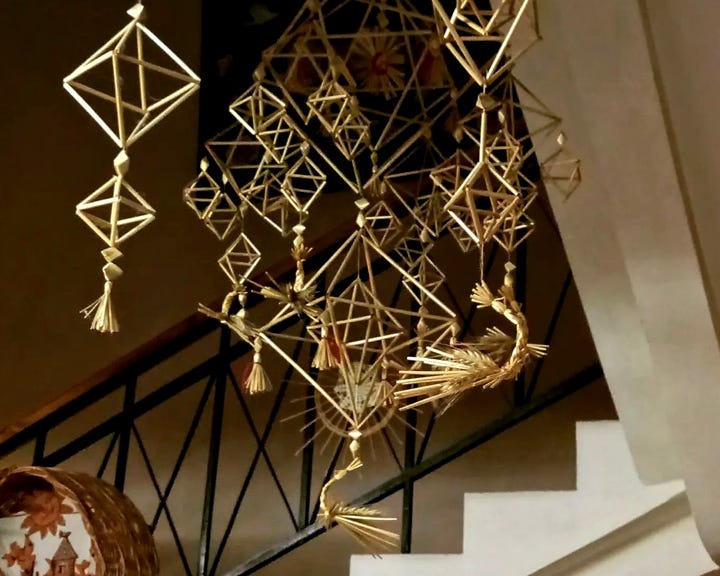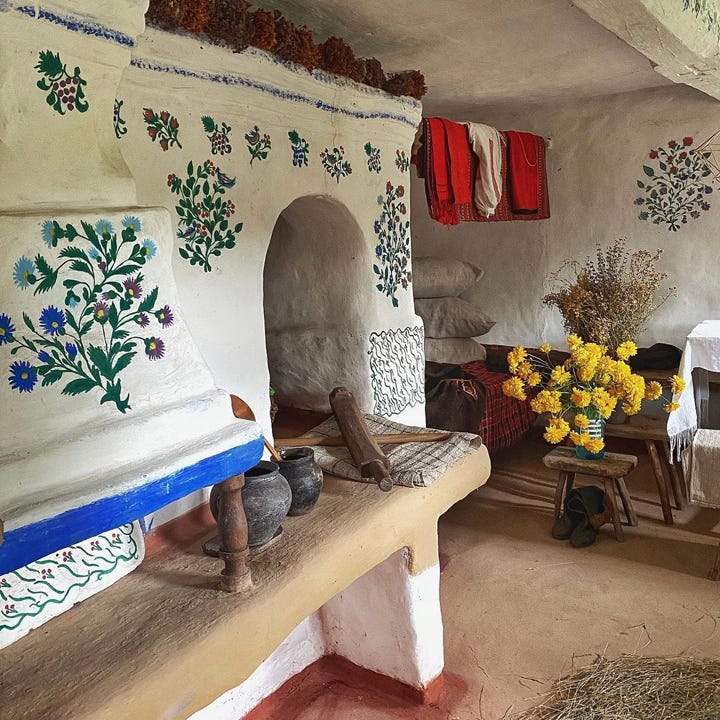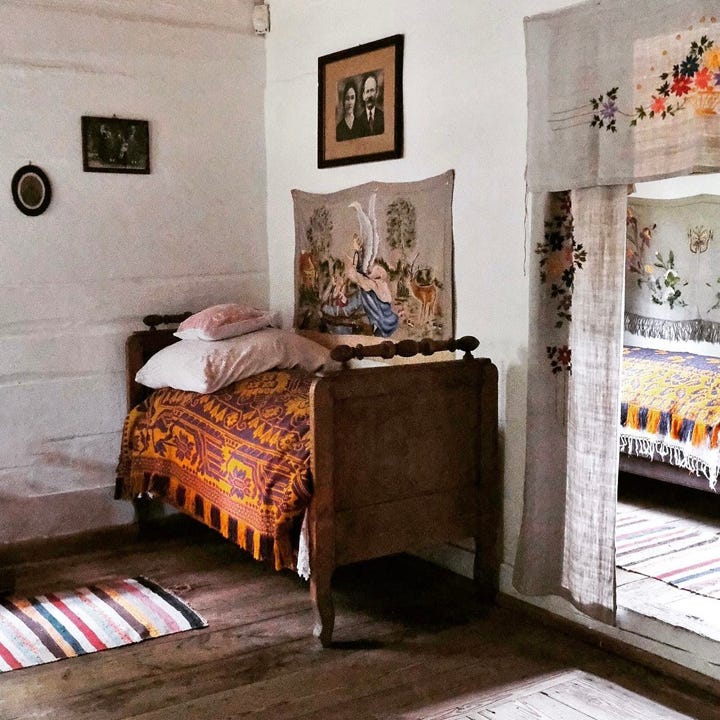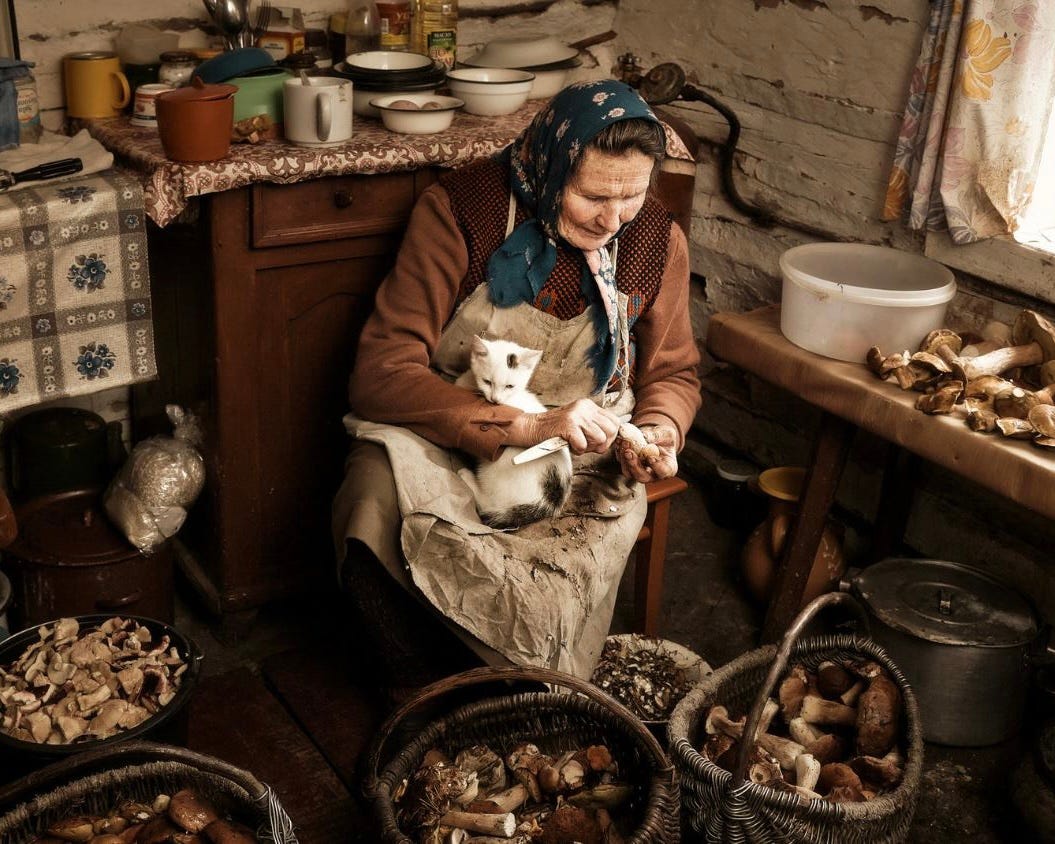
This week I met an old friend I hadn’t seen for 4 years. Like me, they came to the U.S. from a different country and started from scratch, constantly fighting the obstacles and overcoming the challenges of immigrant life. They became the person who supported their entire family, and just like me, they couldn’t return to their native country. As we talked, I shared that my family left Belarus and said: “I don’t have a home there anymore. I lost it.” My friend responded: “You have a home here, the one you built yourself. I know that you miss your home in Belarus, and I know how much it hurts not being able to come back. However, you should look in the future, not the past.” I’ve been thinking about their words for days. My friend is right – I have a home here in the U.S. But I also realized that no one can take my Belarusian home from me. I’ll always have it in my heart. My Belarusian home is my roots, and my American home is the trunk and leaves. I was able to grow only thanks to my roots, and no matter how taller I get and how much further away I move from my roots – they are always with me because they are my foundation.
In the first weeks of the invasion, when I learned that Belarus let Russians use its territory to invade and bomb Ukraine, and later, when we found out about unspeakable atrocities that Russians, who came to Ukraine through the Belarusian territory, committed – I felt huge shame that I was Belarusian. I asked my Ukrainian husband over and over again if he regretted marrying me. I wrote to my Ukrainian friends how deeply sorry I was, and I was preparing to accept if they didn’t want to have me in their lives anymore. I saw many posts online where Ukrainians shared their complete disgust and anger towards Belarusians who, because of their passivity, helped Russians commit unforgivable crimes. If I were Ukrainian, I would feel and react the same, but I was Belarusian.
When pro-democracy protests in Belarus were violently suppressed in 2020, and arrests and killings followed, many Belarusians found refuge in Ukraine. People ran to the Ukrainian border through the forests and swamps without any papers and passports – and Ukrainian guards let them in. Many Ukrainians opened their homes and hearts and tried to help in any way they could. Ukrainians rooted for Belarusians. They organized demonstrations and put white-red-white flags in their windows – the flags of independent and free Belarus. Sometimes, I think that Ukrainians wanted Belarusians to break free from dictatorship and Russian influence even more than some Belarusians.
That’s why, when Belarusians passively let Russians use their territory to invade Ukraine and launch missiles, Ukrainians felt betrayed. I understand them. The reaction of Ukrainians didn’t surprise me, but the response of Belarusians did. Many wrote absolutely ignorant and mean words towards Ukrainians, arguing that they were not responsible for anything, that it was only Lukashenko’s doing, and that they had nothing to do with the invasion. Russians wrote similar things: that they were not responsible, it was only Putin. I saw many Belarusians looking for an excuse to shift blame to someone else (often to Ukrainians) and refusing to admit any responsibility whatsoever or to simply say sorry.
People sitting in relative safety (at least from the bombs, armed soldiers, and tanks) were arguing and writing offensive words to people who were trying to survive the war. Reading that exchange, I felt huge shame for being Belarusian. I didn’t want to have anything in common with people who wrote those things. As Russian troops were encircling Kyiv, bombing Mariupol, committing atrocities in Irpin and Bucha, killing people, stealing children, looting, and destroying everything on their way – Belarusians I knew posted photos of everyday life, celebrated birthdays, went on vacations abroad – and none of them reached out to me or reacted to my posts about Ukraine and my husband’s family. I couldn’t understand it. I texted them first and exchanged many emotional messages, trying to reach their hearts and consciences, but I ended up cutting off and blocking almost all of them.
With each day, I felt a boiling mix of anger and shame. I wrote several posts where I said that I was ashamed to be Belarusian and how sorry I was: for the participation of Belarus in the war, for the reaction of other Belarusians, for everything. I also called on Belarusians to say sorry. I wrote: “As someone who lives in safety, I don’t have the right to tell you to risk your life and protest on the streets or enlist in the Belarusian battalion that fights against Russians in Ukraine. I just ask you to say sorry.” In return, I received many messages from Belarusians telling me they were ashamed of me and that I was not a Belarusian to them. I felt rejected by my own people. I thought: “Belarusians don’t want me to be one of them, and neither do I want to be one of such Belarusians. Who am I then?”
My Ukrainian husband told me: “You were born in the wrong country. You should have been born in Ukraine.” My Ukrainian friends wrote: “You are an honorary Ukrainian to us. You have a Ukrainian heart.” My followers messaged me: “It seems that your people abandoned you, and Ukrainians adopted you.” During one of the hikes with my husband, we saw a young deer grazing with turkeys in the field. My husband said: “It’s you, a deer who was adopted by turkeys.” I laughed with sadness. The support I received from my Ukrainian family and friends was very sweet, and I was honored, but I knew I wasn’t a Ukrainian. I was a Belarusian.
During that time, I received a comment from one Ukrainian person who wrote: “You shouldn’t be ashamed to be a Belarusian. You should do everything to become the one you are proud of.” These words went straight to my heart. I thought that I couldn't change how other Belarusians behave. I couldn’t change many things, but I could do what my heart tells me is the right thing to do – my Belarusian heart.
I started to learn more about Belarusian culture and history. I learned about many brave Belarusians who did extraordinary things and sacrificed their lives through the centuries: people who resisted and fought for the independence of Belarus, people who did everything to preserve Belarusian culture and language. I learned about Kastuś Kalinoŭski, who fought for the freedom of the Belarusian people and against Russian oppression in the 1860s and who became the symbol of Belarusian resistance. I learned about the Slutsk uprising, when self-organized Belarusian people, outnumbered and unequipped, fought against Russian occupiers for the whole month in 1920. People like them are the reason why Belarusians, as a nation, still exist and are not entirely erased by Russian colonialism. This bravery and defiance sparked again during the protests in 2020. So many people sacrificed their lives and freedom in an attempt to be free from dictatorship. Thousands of Belarusians are currently jailed because they chose to resist and speak the truth. Hundreds of Belarusians took up arms, formed a Belarusian battalion, and joined the fight in Ukraine against Russian invaders. These are the Belarusians who are not ashamed of being Belarusians. I became the Belarusian I’m not ashamed of, too.
A few weeks ago, I received the results of my DNA heritage test. It said that I was 100% Eastern European. Not even a tiny percent of other genes. It seems my ancestors never traveled anywhere far and always lived on the same land. I am the first in my family who left home and moved far away to a different continent. The test showed that my roots come from four countries: Belarus, Ukraine, Poland, and Lithuania. The map of the region showed Ukraine and Belarus highlighted in the same color, which meant the percentage of Ukrainian and Belarusian genes was roughly the same. I knew that my maternal great–grandmother's maiden name was Kozak – a Ukrainian last name. I also knew that my mom's biological dad was from the southern region of Belarus, which borders Ukraine. The test confirmed that I have Ukrainian blood, most likely from my mother’s side.
Reading the results, I looked at my Ukrainian husband and said: “It seems that you were not the first Ukrainian in my family.” Since I was a child, I have told everyone that I have two motherlands: Belarus and Ukraine. The test explained why I felt that way. Ukraine was my home, too. A long time ago, ancestors from my mother's side moved from Ukraine to Belarus and settled there. Their children and grandchildren forgot about their Ukrainian heritage, and, for some reason, I was the first person who remembered it. I’ve been thinking a lot about it, and I came to the conclusion that before, I was a Belarusian who didn’t understand why they gravitated toward Ukraine so much. Right now, I’m a Belarusian who knows why they always felt at home in Ukraine. I looked at the test results and imagined myself as a tree with vast roots: Belarusian, Ukrainian, Polish, and Lithuanian, all firmly intertwined, giving me the support I need to grow, and reminding me that no matter where I live, my home is always with me.



Warmly,
Darya
Email: daryazorka@substack.com
Follow me on Instagram
Follow me on Twitter
Shop my art on Etsy
Watch Frontline PBS documentaries on Ukraine
Donate to help Ukraine: UKRAINE DONATION GUIDE 2023




The comment about becoming the Belarusian you want to be hit me hard.....half my family tree is Slovak and I struggle a lot feeling any connection or pride especially with current events.
What a journey you have been on. I understand how you felt, wanting to renounce who you are because of the actions and words of others. For me, it didn't have to do with country/ethnicity but what I believe (others would use the word religion, but I choose not to use that word for my beliefs). I love that you decided to do some digging and found people in your heritage to be proud of. And that you've now embraced who you are so completely - it sounds like you have, at least. Beautiful.